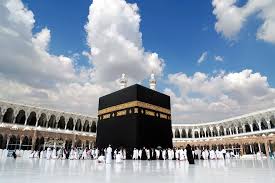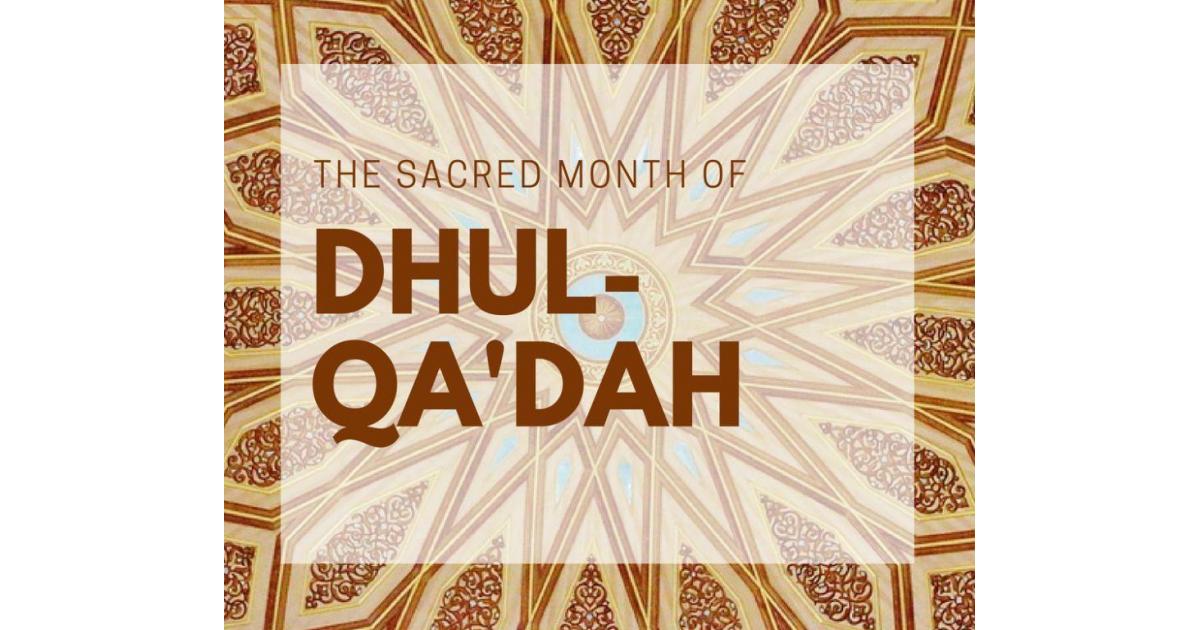Rabi al-Thani, also known as Rabi’ al-Akhir, is the fourth month of the Islamic Calendar. It holds unique significance in the Islamic culture and traditions. This article delves into the various aspects of Rabi-al-Thani, touching upon its importance, associated religious observances, and its place in Islamic history.
Islamic Calendar
The Islamic Calendar, also known as the Hijri Calendar, is a lunar calendar consisting of 12 months. It is based on the phases of the moon, unlike the Gregorian solar calendar. The Islamic calendar began in 622 AD, the year of the Hijra, the migration of the Prophet Muhammad from Mecca to Medina. Each month in this calendar holds its own significance and is often marked by various Islamic holidays and events.
Lunar Months
The Lunar Months in the Islamic calendar include Muharram, Safar, Rabi al-Awwal, Rabi-al-Thani, Jumada al-Awwal, Jumada al-Thani, Rajab, Sha’ban, Ramadan, Shawwal, Dhul-Qi’dah, and Dhul-Hijjah. These months are crucial for Muslim traditions and religious practices.
Rabi-al-Thani follows Rabi’ al-Awwal, a month known for the birth of the Prophet Muhammad. This transition from one month to another is a part of the continuous cycle that governs the lives of Muslims around the world.
Islamic HolidaysRabi al-Thani
While Rabi’ al-Thani itself is not marked by any major Islamic holidays, it falls within a significant period in the Islamic calendar. This month is often a time for reflection and continuing the good deeds initiated in previous months. Various Islamic festivals and holidays such as Eid celebrations in Islamic history often influence the activities in Rabi al-Thani.
Religious Observances
Religious observances during Rabi al-Thani can include additional prayers, fasting, and community gatherings in mosques and communities. It is a time to continue the spiritual journey that might have been more intensely observed during Rabi’ al-Awwal and other significant months. Sufi practices are particularly notable during this time, with gatherings for remembrance (dhikr) and seeking closeness to Allah.
Islamic History
Rabi al-Thani has its own place in Islamic history. Various historical events in Rabi al-Thani are remembered by Muslims, such as battles and significant occurrences in the early Islamic period. Understanding these events helps Muslims connect with their Islamic heritage and appreciate the trials and triumphs of early Muslims.
Hijri Calendar
The Hijri Calendar is essential for determining the timing of Islamic ceremonies, festivals, and observances. Each month, including Rabi al-Thani, begins with the sighting of the new moon, emphasizing the importance of lunar cycles in Islamic culture. This calendar not only marks religious dates but also serves as a cultural touchstone for Muslims worldwide.
Islamic Festivals
Though not characterized by major Islamic festivals, Rabi al-Thani serves as a period of preparation and reflection for upcoming events in the Islamic calendar. It’s a time for reinforcing faith and preparing for significant months like Ramadan. The observances and reflections during this month contribute to the spiritual buildup leading to the holy month of fasting.
Islamic Culture
Rabi al-Thani is embedded in the rich tapestry of Islamic culture. The practices, traditions, and observances during this month reflect the diversity and depth of Islamic traditions. Community gatherings, educational sessions, and religious practices all contribute to the vibrant cultural life of Muslims.
Muslim Traditions
Muslims uphold various traditions during Rabi al-Thani. These traditions can include special prayers, charity work, and community service. Upholding Muslim traditions during this month helps strengthen the bonds within the community and foster a sense of belonging and purpose.
Islamic Significance
The Islamic significance of Rabi al-Thani lies in its place within the larger framework of the Hijri Calendar. It serves as a time for continued devotion and adherence to Islamic principles. The month acts as a bridge between the significant events of Rabi’ al-Awwal and the spiritual preparations for Ramadan.
Prophet Muhammad
The life and teachings of the Prophet Muhammad continue to inspire Muslims during Rabi al-Thani. Reflecting on his life, particularly after commemorating his birth in Rabi’ al-Awwal, motivates Muslims to emulate his virtues and strive for piety and righteousness.
Mosques and Communities
Mosques and communities play a pivotal role during Rabi al-Thani. They serve as centers for worship, education, and community activities. Events held in mosques during this month often focus on spiritual growth and community cohesion.
Islamic New Year
Though the Islamic New Year begins in Muharram, each month, including Rabi‘al Thani, contributes to the spiritual journey of Muslims throughout the year. The cyclical nature of the Hijri Calendar ensures that each month has its own importance and role in the continuous process of spiritual renewal.
Islamic Ceremonies
Islamic ceremonies during Rabi‘al Thani can include weddings, naming ceremonies, and other significant life events. These ceremonies are often marked by prayers, community gatherings, and festive activities that reflect the joyous and solemn aspects of Islamic life.
Islamic Heritage
Preserving and celebrating Islamic heritage is an ongoing process, and Rabi‘al Thani offers opportunities for Muslims to engage with their history and traditions. Educational programs, historical commemorations, and cultural events during this month help maintain a strong connection to Islamic roots.
Islamic Education
Islamic education is a lifelong pursuit, and Rabi‘al Thani is no exception. Classes, lectures, and study circles in mosques and community centers focus on various aspects of the faith, from Quranic studies to the life of the Prophet Muhammad. These educational activities are essential for deepening one’s understanding of Islam.
Sufi Practices
Sufi practices are particularly vibrant during Rabi‘al Thani. Sufism, with its emphasis on spiritual closeness to Allah, often involves gatherings for dhikr (remembrance) and other spiritual exercises. These practices provide a profound spiritual experience for those who participate.
Rabi al-Thani Celebrations
Rabi‘al Thani celebrations might not be as prominent as those in other Islamic months, but they hold a special place in the hearts of many Muslims. These celebrations often involve community gatherings, educational events, and spiritual activities that strengthen faith and community bonds.
Historical Events in Rabi al-Thani
Various historical events in Rabi‘al Thani are commemorated by Muslims. Understanding these events helps to appreciate the rich tapestry of Islamic history and the significant milestones that have shaped the Muslim world.
Islamic Scholarship
Islamic scholarship thrives during Rabi‘al Thani, with scholars and students engaging in deep study and reflection. This month provides an opportunity to delve into Islamic texts and teachings, contributing to the continuous development of Islamic knowledge and understanding.
Religious Practices
Religious practices in Rabi‘al Thani include daily prayers, Quran recitation, fasting, and acts of charity. These practices help Muslims maintain a strong spiritual connection and live according to the principles of Islam.
Festive Foods
Festive foods are an integral part of any Islamic celebration. During Rabi‘al Thani, various traditional dishes are prepared and shared within communities. These foods not only provide nourishment but also foster a sense of unity and joy.
FAQs
Q: What is the significance of Rabi al-Thani in the Islamic calendar?
A: Rabi‘al Thani is the fourth month of the Islamic calendar. It is a time for continued spiritual reflection and observance following the significant month of Rabi’ al-Awwal.
Q: Are there any major Islamic holidays in Rabi al-Thani?
A: While Rabi‘al Thani itself does not have major Islamic holidays, it is a period of preparation and reflection leading up to significant months like Ramadan.
Q: How do Muslims observe Rabi al-Thani?
A: Muslims observe Rabi‘al Thani through prayers, community gatherings, educational activities, and continued acts of worship and charity.
Q: What are some historical events that occurred in Rabi al-Thani?
A: Various historical events in Rabi‘al Thani are remembered, including battles and significant occurrences in early Islamic history.
Q: How does Rabi al-Thani contribute to Islamic education?
A: Rabi‘al Thani is a time for continued Islamic education through classes, lectures, and study circles, focusing on deepening one’s understanding of Islamic teachings.
Conclusion
Rabi‘al Thani is a month rich in spiritual and cultural significance within the Islamic calendar. Through its observances, historical commemorations, and community activities, it offers Muslims an opportunity to continue their spiritual journey, uphold traditions, and deepen their faith. The practices and traditions during this month reflect the vibrant and diverse nature of Islamic culture. At thefuturedreams.com, we aim to provide insights and information that help Muslims worldwide connect with their heritage and strengthen their faith.




